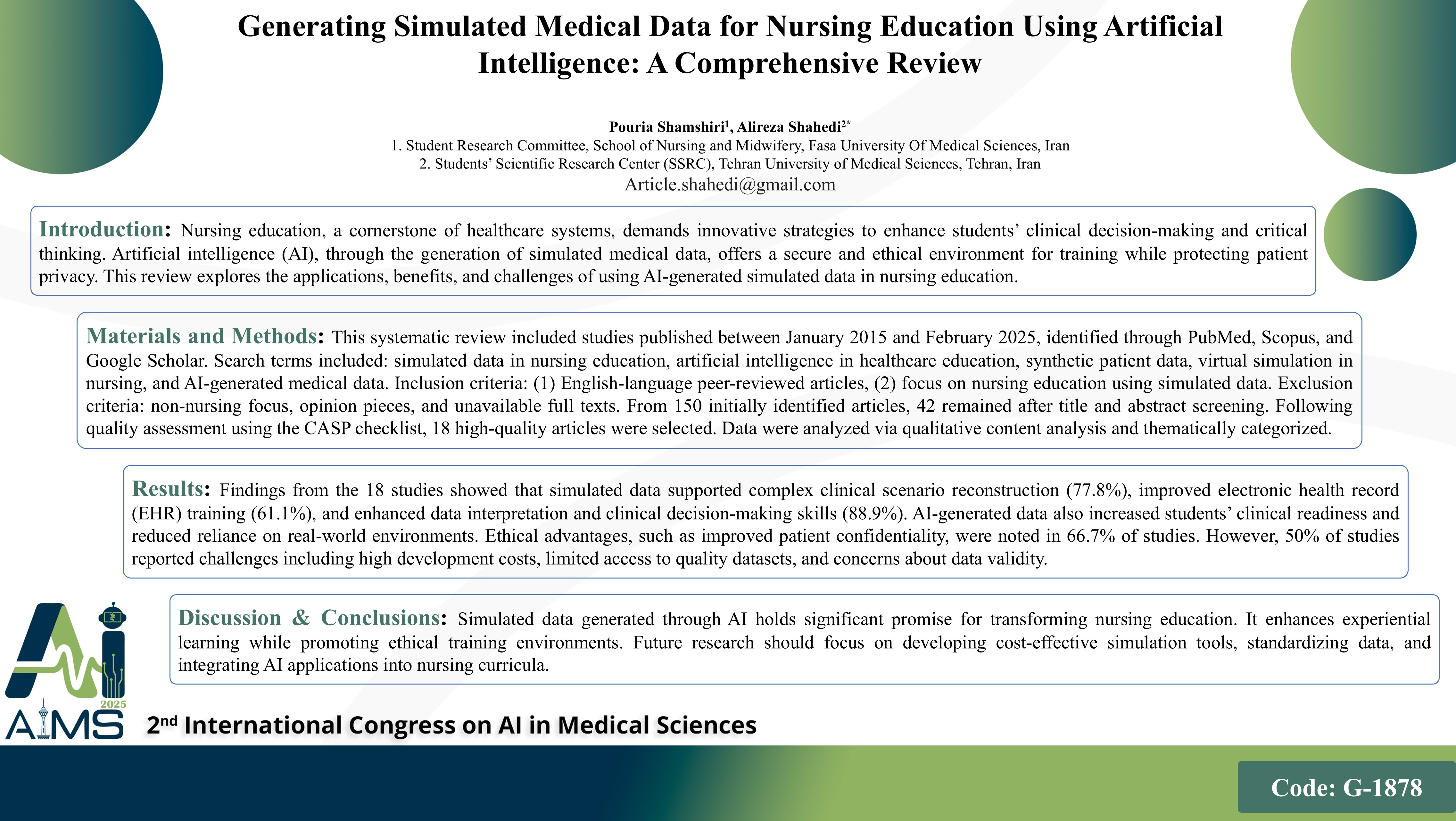Generating Simulated Medical Data for Nursing Education Using Artificial Intelligence: A Comprehensive Review
Code: G-1878
Authors: Pouria Shamshiri, Alireza Shahedi * ℗
Schedule: Not Scheduled!
Tag: Intelligent Virtual Assistant
Download: Download Poster
Abstract:
Abstract
Introduction: Nursing education, a cornerstone of healthcare systems, demands innovative strategies to enhance students’ clinical decision-making and critical thinking. Artificial intelligence (AI), through the generation of simulated medical data, offers a secure and ethical environment for training while protecting patient privacy. This review explores the applications, benefits, and challenges of using AI-generated simulated data in nursing education. Methods: This systematic review included studies published between January 2015 and February 2025, identified through PubMed, Scopus, and Google Scholar. Search terms included: simulated data in nursing education, artificial intelligence in healthcare education, synthetic patient data, virtual simulation in nursing, and AI-generated medical data. Inclusion criteria: (1) English-language peer-reviewed articles, (2) focus on nursing education using simulated data. Exclusion criteria: non-nursing focus, opinion pieces, and unavailable full texts. From 150 initially identified articles, 42 remained after title and abstract screening. Following quality assessment using the CASP checklist, 18 high-quality articles were selected. Data were analyzed via qualitative content analysis and thematically categorized. Results: Findings from the 18 studies showed that simulated data supported complex clinical scenario reconstruction (77.8%), improved electronic health record (EHR) training (61.1%), and enhanced data interpretation and clinical decision-making skills (88.9%). AI-generated data also increased students’ clinical readiness and reduced reliance on real-world environments. Ethical advantages, such as improved patient confidentiality, were noted in 66.7% of studies. However, 50% of studies reported challenges including high development costs, limited access to quality datasets, and concerns about data validity. Conclusion: Simulated data generated through AI holds significant promise for transforming nursing education. It enhances experiential learning while promoting ethical training environments. Future research should focus on developing cost-effective simulation tools, standardizing data, and integrating AI applications into nursing curricula.
Keywords
Artificial Intelligence, Nursing Education, Computer
